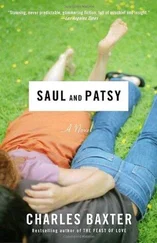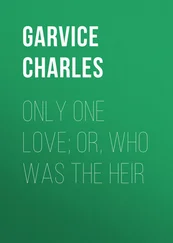The only trouble with having an affair like ours is that the two of you can’t go outside much. It tests the friendship more than it tests the sex. The old story: you can’t be viewed in public, you’re always Anna and Vronsky on this diminished suburban scale. You can’t work in the garden, the two of you. You can’t rake the leaves. You can’t go to movies at the cineplex and you can’t find yourselves at concerts or gallery shows. You have no opportunity to sit around on Sunday morning, funky and grungy and full of opinions, while you read the paper. You just stay in little rooms, those times when you can arrange it, the illicit playground of furtive and therefore heightened eros. The constraints challenge your sexual resourcefulness. Sometimes you have sex inventively all afternoon, in bed or on the floor or in the shower, for want of anything better to do. You do the fireworks. You light them and watch them go off. Of course, he didn’t mind that, but, like me, he saw its limitations.
WE HAD ONCE TRIED to do what married people do: we went together to a department store to buy a pair of driving gloves. The whole event felt uncomfortably like a charade. At the counter, the salesgirl allowed me to try on several different pairs, and David smiled and frowned and exercised his discriminations and helped me choose the ones I bought, a very soft leather, light tan.
“Is that pair the one you really want, Diana?”
“Yes.” I smiled.
“Sure?”
“Yes, I’m sure.”
He wasn’t the least bit businesslike when he was strolling the aisles with me; he was pleasant when he admired the sweaters and the watches and the diamond pins, and me, but the whole episode was like an amateur theatrical: Two Lovers Pretend They’re Not Clandestine. But we were, even there, under the lights and surveillance cameras. Our eyes kept roving, on the lookout for anyone known to the two of us, including the wife.
She, the wife, hadn’t managed to stay interested in him, he said, though they did make love somehow for the sake of appearances, and she put the radio on to a twenty-four-hour news station so that she wouldn’t have to hear the sounds they made together, the creaks and the groans. He liked going to bed in my bed because he didn’t have to listen to the news when I was on top and was riding him to kingdom come. Well, I mean: the poor man.
Despite all this, he said he loved his wife, et cetera. And of course there were the children, two of them, a boy and a boy. I’d say: You don’t have to explain or apologize, honey; I don’t want to marry you. I don’t love you. But, oh, sweet guy, you’re my friend, my buddy, and you’re agreeable and adept in bed. He seemed wounded when I complimented him for these secondary virtues. And I said, No, no. A sane man who can be a friend and a lover to a woman is a find. You, David, are a find, I would say as we lay facing each other in my bathtub’s hot soapy water and he slipped soap-rings over my fingers and then massaged my feet. You are a real find and you keep me satisfied, up to a point. After all, I’m a malcontent and you can’t change that.
SO THERE I WAS, in Jitters at the Briardale Mall, drinking my morning coffee and reading the paper during a power failure. Housed in my gray suit, nicely and distinctly accessorized with a small gold pin David had bought for me, I was sipping a Tip of the Andes specialty blend and checking the New York Times arts-and-leisure section, a feature on the choreographer Mark Morris whose work I happened to admire for its ritualized symmetries. In college I had aspirations to be a dancer, now done for. But I felt relaxed and very expensive, concentrating my forces. I had a large complicated case in the works and I was Zen-ing the whole thing, coolly distant but already imagining through strategy each step and each minute detail how I’d win. I was pre-victoring it. I had a couple of aces up my sleeve, and the anticipation of my winning — my future winnings — made me not happy, exactly, but contented with myself. The client was almost irrelevant by that time.
When the power went off in the mall, I was the power, so I didn’t care. I thought about my four colleagues in their darkened law offices half a mile away. I imagined those contentious characters — nominally friends of mine — stuck in elevators or in conference rooms with no ventilation, trying to figure out who to blame for the loss of electricity.
If God appeared on this earth again, lawyers would sue Him.
I always have coffee before going to work. I tend to get to the office a bit late. I am quite successful — I do litigation — and can pretty much set my own hours except when I go to court. I have to be reckoned with. No one tells me when to arrive at the office. No can do. You don’t dictate anything to me.
My days are segmented, very clearly divided and defined, and that is how I work it. I have a compartment for everything, including getting ready for the working day, down to the coffee and the paper and the arts-and-leisure section. And I have always orchestrated my romances with, well, an icy methodical self-interest. That’s how I managed my affair with David.
As regulated by law, as soon as the power went off, the safety floodlights went on. Certainly enough illumination to catch up on the news. Sounds of meteorological strife resounded above me. From the sound of it, hail was falling out of the sky. I didn’t care. I went on reading.
The manager of the shop appeared next to me.
“How can you read in this light? It’s so dim.”
I didn’t bother looking up. “I’m used to dim bulbs,” I said.
“In that case, you’d be right at home here.”
Oh, a contender. Someone for whom some notice was required. It’s always a key moment when you have to drop what you’re doing to look up at a man who has initiated this sort of conversation. So, noting the paragraph where I had stopped reading in the Mark Morris article, I trained my blue eyes on him and took his measure. Before me, leaning against a chair, stood a tallish man of somewhat uncertain appearance. He gave me a guarded smile. He didn’t flinch when I gazed at him. He radiated a sort of old-fashioned semisexy kindliness planted in the midst of a serviceable face. He had meditative, haunted eyes, a painter’s eyes, as it turned out, widely set apart in his vaguely half-handsome head. I couldn’t yet tell if he was being friendly in order to flirt, or to increase customer satisfaction. Or whether the flirting was specific to me or generic to women. I kept thinking: he’s halfway there, wherever “there” is. Probably the kids in grade school had called him Froggy.
He stood, as if planted, in the cold trashy evacuation floodlight and smiled persistently. He didn’t seem dim in the least. It was all a pretense. He was imagining us as comrades in a weather crisis, elbow to elbow as we faced a green sky. Meteorological solidarity. I heard the hail pounding atop the skylight. Weather is so nineteenth-century in its effects, I thought. “I’ve seen you here before,” he said.
“This place is close to work,” I said.
“I thought maybe the appeal lay in our atmosphere.” He leaned against the wall. “Our way of making our customers feel at home. Not customers — guests.”
“It’s close to work.”
“Or that maybe you were attracted by the paintings, the ambiance, all this comfortable furniture you see, or perhaps even the quality of the coffee.”
“It’s close to work.”
“Okay,” he said, “it’s the staff, the friendly unassuming service people you tend to encounter periodically around here, like Chloé, snoozing there in the back.” He gestured in the direction of a punkette half-asleep in a rear booth. I was about to get up and flee from his defective overtures when he said, “I’m sorry. You’re exasperated by me, I can tell. You know, I don’t mean to be exasperating. I’ll let you finish your coffee. Sorry to bother you.” He waited. “By the way, where is work, for you?”
Читать дальше
Конец ознакомительного отрывка
Купить книгу












